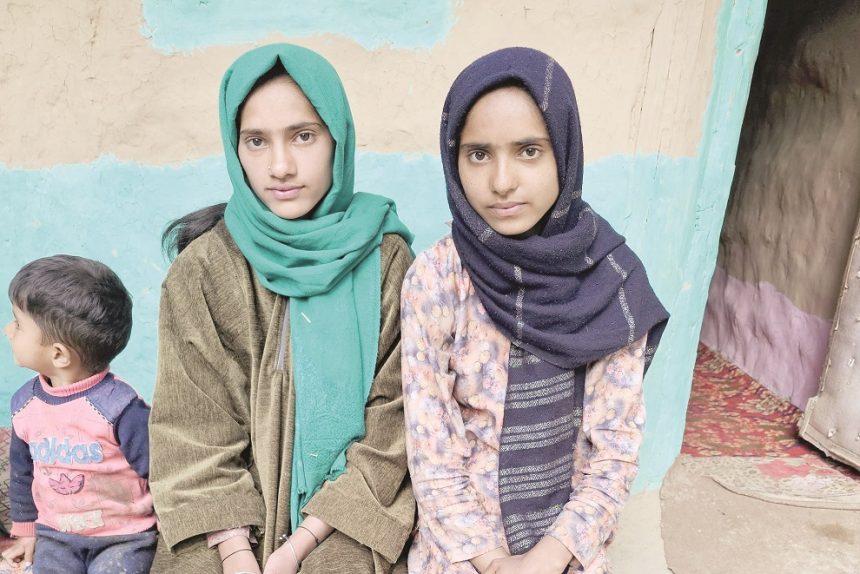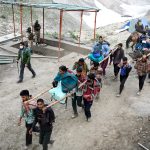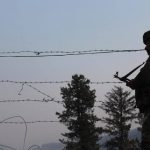As bullets tore through the calm of Baisaran meadows on April 22, a small mud house at the edge of the forest became an unexpected refuge for dozens of terrified tourists. The two teenage sisters who live there, Rubeena (14) and Mumtaza (16), risked their lives to shelter women, children, and the elderly as panic gripped the area following a deadly terrorist attack that left 27 civilians dead.
The house belongs to Rubeena, 14, known affectionately as the “Rabbit Girl of Kashmir”, and her sister Mumtaza, 16. What was once a quiet home on the fringes of a tourist trail became a sanctuary for dozens of terrified tourists fleeing a brutal terror attack that left 27 civilians dead.
Rubeena, with her signature bunny in hand, was a familiar sight in Baisaran—earning a few rupees by letting tourists pose with her beloved pet. Her days were simple, filled with animal care, laughter, and life in the valley. But that day, when screams and gunfire shattered the calm, she and her sister chose courage over fear.
Despite recovering from a fractured foot, Mumtaza refused to stay back. When panic-stricken tourists came scrambling down the mountain trails, the sisters rushed out of their home, guided not by training or orders, but by instinct and compassion.
Faces pale with fear, their eyes darted for shelter. Some had children clutched tightly in their arms, others were barefoot, having left everything behind in their frantic escape. In that moment of panic, the sisters saw a sea of strangers in desperate need of help.
“I saw them running and crying for help. They were shouting, ‘Save our kids…’,” Rubeena told Rising Kashmir, her voice trembling as she recalled the scene. “Some of them couldn’t run on the mud. They were just looking for a place to hide.”
Rubeena said she carried two kids on her shoulders and ran toward safety. “Dozens of tourists, including women and children, stayed in our house for almost half an hour. We provided them with water. They were shivering with fear, waiting for their loved ones who might still be out there.”
The modest mud house—the last structure on the way to Baisaran—had no electricity, no lavish comforts. Yet, it became the first glimmer of hope in a storm of terror. With quick thinking and no regard for their own safety, Rubeena and Mumtaza welcomed the frightened tourists into their humble abode, offering them shelter, water, and reassurance.
“I didn’t think of my own injury,” said Mumtaza, who had been limping due to her fractured foot. “A woman was screaming, her child had lost a shoe. I just picked him up and carried him on my shoulder. We had to move. We couldn’t leave them behind.”
The girls didn’t stop at just one act of kindness. They made three separate rescue trips, each time venturing into the wilderness to bring more people to safety. Worn-out fathers, mothers crying for their children, shivering tourists—each found a safe haven in the sisters’ home.
“We gave them water,” Rubeena recalled, almost apologetically, as though her simple act wasn’t enough. “We didn’t have much, but it was better than leaving them out there.”
Despite their limited resources, the sisters did everything they could to help. They offered the tourists their only food—flattened bread and milk meant for their younger brother—and turned their house into a refuge filled with warmth, even if not in the traditional sense.
When security forces finally arrived, they didn’t only find survivors—they found stories of two teenagers who, despite the danger, had chosen to stand firm and offer help when others might have run. The authorities in Anantnag have hailed the actions of the two siblings.
“We just did what anyone would do,” says Mumtaza, downplaying their bravery.
But not everyone would have acted the way they did. In a world that often turns away in the face of danger, Rubeena and Mumtaza defied fear. They didn’t have a plan, nor did they receive any formal training. They only had each other, their bond, and an innate sense of compassion that propelled them to do the right thing when it mattered most.
Their home, which still stands as it always has—small, cracked, and surrounded by the wilderness—has become more than just a house. It is now a symbol of resilience—a testament to the bravery of two young girls who turned their humble abode into a sanctuary, offering safety and compassion to strangers in their darkest hour.
Pahalgam bloodbath: Last mud house on forest trail becomes first hope for fear stricken tourists
Fractured foot, no power—but endless courage as ‘Rabbit Girl’ Rubeena, her sibling rescue tourists

Leave a Comment Leave a Comment







